“I have never yet heard of a murderer who was not afraid of a ghost.”
~John Philpot Curran
As you will see a few items down in this article,
Edward Shue would definitely agree.
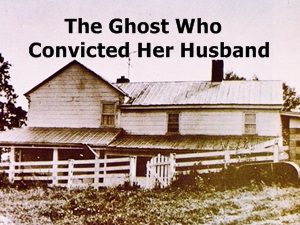
==================================

1556 – An earthquake in Shaanxi, China, killed an estimated 830,000 people. Counting casualties is often imprecise after large-scale disasters, especially prior to the 20th century, but this disaster is still considered the deadliest of all time.
The epicenter of the earthquake was in the Wei River Valley in the Shaanxi Province, near the cities of Huaxian, Weinan and Huayin. In Huaxian, every single building and home collapsed, killing more than half the residents of the city, a number estimated in the tens of thousands.
It was a similar story in Weinan and Huayin. In some places, 60-foot-deep crevices opened in the earth. Serious destruction and death occurred as much as 300 miles away from the epicenter. The earthquake also triggered landslides, which contributed to the massive death toll.
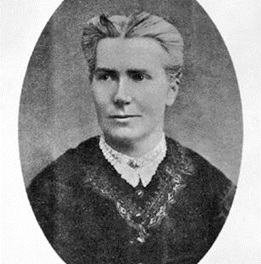
1849 – Elizabeth Blackwell was granted a medical degree from Geneva College in New York, becoming the first female to be officially recognized as a physician in U.S. history.
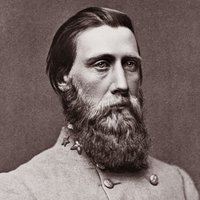
1865 – Confederate General John Bell Hood was officially removed as commander of the Army of Tennessee. He had requested the removal a few weeks before; the action closed a bleak chapter in the history of the Army of Tennessee.
As a brigadier general, he had built a reputation as an aggressive field commander. He distinguished himself during the Seven Days Battles in June 1862, and was given command of a division. His counterattack at the Battle of Antietam in Maryland in September 1862 may have saved Robert E. Lee’s army from total destruction.
After being wounded at the Battle of Gettysburg, Pennsylvania, in July 1863, Hood was transferred to the Army of Tennessee. He was soon wounded again, losing a leg at Chickamauga in September. Hood was promoted to corps commander for the Atlanta campaign of 1864, and was elevated to commander of the army upon the removal of Joseph Johnston in July.
Over the next five months, Hood presided over the near destruction of that great Confederate army. He unsuccessfully attacked Union General William T. Sherman’s army three times near Atlanta, relinquished the city after a month-long siege, and then took his army back to Tennessee in the fall to draw Sherman away from the Deep South. Sherman dispatched part of his army to Tennessee, and Hood lost two battles at Franklin and Nashville in November and December 1864.
There were about 65,000 soldiers in the Army of Tennessee when Hood assumed command in July. On January 1, a generous assessment would count 18,000 men in the army, which was no longer a viable fighting force.
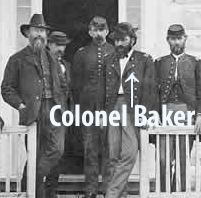
1870 – Declaring he did not care whether or not it was the rebellious band of Indians he had been searching for, Colonel Eugene Baker ordered his men to attack a sleeping camp of peaceful Blackfeet along the Marias River in northern Montana.
As the darkness faded in the early morning hours, Baker’s scout, Joe Kipp, recognized that the painted designs on the buffalo-skin lodges were those of a peaceful band of Blackfeet led by Heavy Runner.
Kipp rushed to tell Baker that they had the wrong Indians, but Baker reportedly replied, “That makes no difference, one band or another of them; they are all Blackfeet and we will attack them.” Baker then ordered a sergeant to shoot Kipp if he tried to warn the sleeping camp of Blackfeet and gave the command to attack.
By the time the brutal attack was over, Baker and his men had, by the best estimate, murdered 37 men, 90 women, and 50 children. Knocking down lodges with frightened survivors inside, the soldiers set them on fire, burnt some of the Blackfeet alive, and then burned the band’s meager supplies of food for the winter.
Baker initially captured about 140 women and children as prisoners to take back to Fort Ellis, but when he discovered many were ill with smallpox, he abandoned them to face the deadly winter without food or shelter.
When word of the Baker Massacre (now known as the Marias Massacre) reached the east, many Americans were outraged, but neither Baker nor his men faced a court martial or any other disciplinary actions.
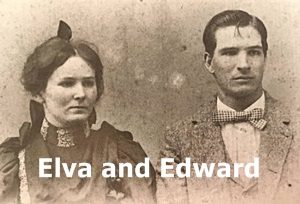
1897 – Elva Zona Heaster Shue was found dead in Greenbrier County, West Virginia. The resulting murder trial of her husband is the only case in U.S. history where the alleged testimony of a ghost helped secure a conviction.
Zona appeared to her mother in a dream four weeks after the funeral. She said that her husband of three months, Edward Stribbling Trout Shue, was a cruel man who abused her, and had attacked her in a fit of rage. The apparition claimed Shue broke her neck; to prove this, the ghost turned her head around until it was facing backwards.
The local prosecutor, John Alfred Preston, spoke to Dr. George Knapp, who stated that he had not made a complete examination of the body.
Knapp claimed by the time he arrived at the house, Shue had carried his wife’s body upstairs to the bedroom, and laid her out on the bed. He dressed the corpse himself; this was unusual, as traditionally the job of washing and preparing the body for burial would be undertaken by the women of the community.
Knapp, noting the husband’s grief, gave the body only a brief examination, noting some bruising on the neck. When he tried to look closer, Shue reacted so violently that Knapp ended the examination and left the house.
Initially, Zona’s cause of death was listed as “everlasting faint”; later, this was changed to “childbirth,” but whether she was actually pregnant or not is unknown.
During the wake, Shue allowed no one to come close to the coffin, especially while he was placing a pillow on one side of her head and a rolled-up sheet on the other. He explained these additions by saying that they would help his wife “rest easier.” Shue also tied a large scarf at the corpse’s neck, explaining tearfully that it “had been Zona’s favorite.”
This was viewed as sufficient justification for an autopsy, and an exhumation was ordered.
Zona’s body was examined on February 22, 1897. The autopsy lasted three hours and found that her neck had indeed been broken.
According to the report, “the discovery was made that the neck was broken and the windpipe mashed. On the throat were the marks of fingers indicating that she had been choked. The neck was dislocated between the first and second vertebrae. The ligaments were torn and ruptured. The windpipe had been crushed at a point in front of the neck.”
On the strength of this evidence, Shue was arrested and charged with the murder of his wife. He was convicted and sentenced to life in prison at the West Virginia State Penitentiary, where he lived for three more years.
As for Zona, her ghost was never seen in the area again.
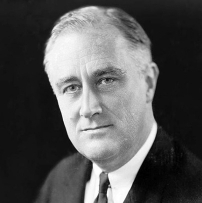
1932 – New York Gov. Franklin D. Roosevelt announced his candidacy for the Democratic presidential nomination.
By the time of the Democratic National Convention in June, Roosevelt was believed to have more delegate votes than all of his opponents combined. However, due to the “two-thirds” nominating rule then used by the Democrats, his opponents hoped that he would be unable to obtain the two-thirds majority necessary to win, and that they could gain votes on later ballots.
On the first three ballots Roosevelt had well over a majority of the delegate vote, but still lacked the two-thirds majority.
Before the fourth ballot, his campaign managers struck a deal with House Speaker John Nance Garner: Garner would drop out of the race and support Roosevelt, and in return Roosevelt would agree to name Garner as his running mate. With this agreement, Roosevelt won the two-thirds majority and with it the presidential nomination.
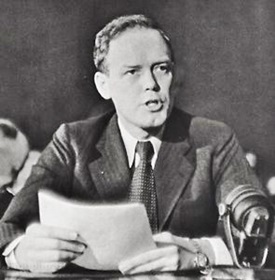
1941 – Charles A. Lindbergh, a national hero since his nonstop solo flight across the Atlantic, testified before the House Foreign Affairs Committee on the Lend-Lease policy (which offered cash and military aid to countries friendly to the United States in their war effort against the Axis powers) and suggested that the United States negotiate a neutrality pact with Adolf Hitler.
During the mid-1930s, Lindbergh had become familiar with German advances in aviation and warned his U.S. counterparts of Germany’s growing air superiority.
Lindbergh also became enamored of much of the German national “revitalization” he encountered, and allowed himself to be decorated by Hitler’s government, which drew tremendous criticism back home.
Lindbergh’s subsequent public denunciation of “the British, the Jewish, and the Roosevelt Administration” as instigators of American intervention in the war – as well as comments that smacked of anti-Semitism – lost him the support of isolationists.


1962 – Jackie Robinson and Bob Feller were elected to the Baseball Hall of Fame by the Baseball Writers’ Association of America. Just as he had been the first African-American to play in the Major Leagues, Robinson became the first to be elected to the Hall of Fame.

1962 – Tony Bennett recorded I Left My Heart In San Francisco for Columbia Records.
The label released it as the B-side of Once Upon A Time but radio DJs (and listeners) preferred the song which went on to win the Grammy Award for Record of the Year, as well as for Best Male Solo Vocal Performance.

1968 – The U.S. intelligence-gathering ship Pueblo was seized by North Korean naval vessels and charged with spying and violating North Korean territorial waters.
Negotiations to free the 83-man crew of the U.S. ship dragged on for nearly a year, damaging the credibility of President Lyndon Johnson’s administration.

1971 – It was a cold day in Prospect Creek Camp, Alaska. The lowest temperature ever recorded in the U.S. was reported as the mercury fell to a minus 79.8 degrees Fahrenheit.
It warmed up to minus 66 later in the day.
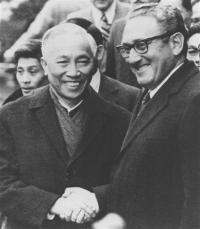
1973 – President Richard Nixon announced that Henry Kissinger and Le Duc Tho, the chief North Vietnamese negotiator, had initialed a peace agreement in Paris “to end the war and bring peace with honor in Vietnam and Southeast Asia.”
Under the terms of the agreement, which became known as the Paris Peace Accords, a cease-fire would begin at 8 a.m., January 28, Saigon time (7 p.m., January 27, Eastern Standard Time).
In addition, all prisoners of war were to be released within 60 days and in turn, all U.S. and other foreign troops would be withdrawn from Vietnam within 60 days.
With respect to the political situation in South Vietnam, the Accords called for a National Council of Reconciliation and Concord, with representatives from both South Vietnamese sides (Saigon and the National Liberation Front) to oversee negotiations and organize elections for a new government.
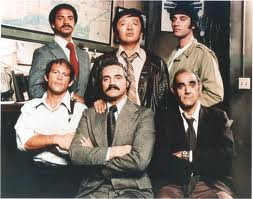
1975 – Barney Miller debuted on ABC. The talented cast made the show a hit for eight seasons. There were 170 episodes in the series; making it one of television’s most durable comedies.

1977 – Roots, the miniseries based on Alex Haley’s novel Roots: The Saga Of An American Family, premiered on ABC. The eight-part series received 37 Emmy Award nominations, winning 9.
Each episode captured more than 40% of the viewing audience – the finale on January 30 reached 51.1% and was watched by 100 million viewers when the U.S. had a population of 220 million – and every episode remains in the top 100 of all-time Nielsen rankings.
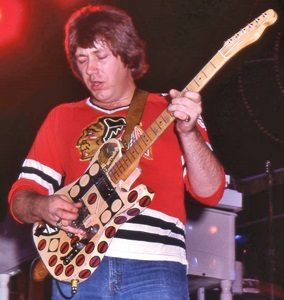
1978 – Terry Kath (lead guitarist and occasional lead singer with Chicago – Dialogue (Part I & II, Colour My World and Make Me Smile) died from an accidental self-inflicted gunshot wound.
Kath, a gun enthusiast, was attending a party at roadie Donnie Johnson’s home in Los Angeles. He had been drinking heavily and showing off his automatic pistols. Kath took an unloaded .38 revolver and put it to his head, pulling the trigger several times on the empty chambers.
Picking up a semi-automatic 9mm pistol, Kath put the gun to his temple. He was asked to put it away. He ejected the magazine to show that the weapon was unloaded. He returned the clip and placed the barrel against his temple.
After saying, “Don’t worry, it’s not loaded,” Kath pulled the trigger. The chambered round he had neglected to unload killed him instantly.

1979 – Willie Mays was the sole eligible candidate elected to the Baseball Hall of Fame by the Baseball Writers’ Association of America.
Despite his outstanding career numbers (.302 batting average, 660 home runs, 338 stolen bases, 12-time Gold Glove winner), his name was left off 23 of the 432 ballots cast.
New York sports columnist Dick Young, never one to mince words, blasted his fellow voters. “If Jesus Christ were to show up with his old baseball glove, some guys wouldn’t vote for him.”
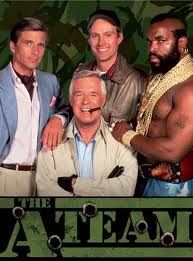
1983 – The A-Team premiered on NBC, beginning a five-year run – and creating a short-lived superstar – Mr. T – in the process.

1986 – The first Rock and Roll Hall of Fame induction ceremony took place at the Waldorf-Astoria Hotel in New York City. The first inductees were Chuck Berry, James Brown, Ray Charles, Sam Cooke, Everly Brothers, Fats Domino, Buddy Holly, Jerry Lee Lewis, Little Richard and Elvis Presley.
Rock Factoid: Alan Freed, Sam Phillips and John Hammond were inducted in the Non-Performer category, while Robert Johnson, Jimmie Rodgers and Jimmy Yancey were inducted into the Hall as Early Influences.
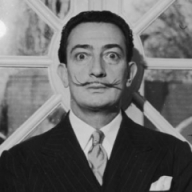
1989 – Salvador Dali (surrealist painter best-known for The Persistence Of Memory) died of heart failure at the age of 84.
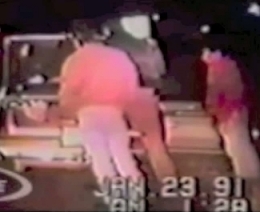
1991 – Darrell Lunsford, a county constable in Garrison, Texas, was killed after pulling over a traffic violator. His murder was remarkable because it was captured on a camera set up in Lunsford’s patrol vehicle.
The videotape evidence led to the conviction of the three men who beat, kicked, and stabbed the officer to death along the East Texas highway.
The videotaped murder of Lunsford ushered in a new era. Video cameras have become standard procedure in police cars, and have proven to be a potent law-enforcement tool.
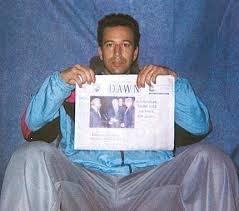
2002 – On his way to what he thought was an interview with Sheikh Mubarak Ali Gilani at the Village Restaurant in downtown Karachi, Pakistan, Wall Street Journal reporter Daniel Pearl was kidnapped by a militant group calling itself the National Movement for the Restoration of Pakistani Sovereignty.
The group claimed Pearl was a spy and sent the United States a range of demands, including the freeing of all Pakistani terror detainees, and the release of a halted U.S. shipment of F-16 fighter jets to the Pakistani government.
Nine days later, Pearl was decapitated.

2004 – Bob Keeshan (played “Clarabell the Clown” on Howdy Doody from 1948-1952, but will forever be remembered as Captain Kangaroo from 1955-1984) died after a long illness at the age of 76.
He was a huge part of my youth, and if you grew up anytime in the 50s, 60s, 70s, or 80s, he was undoubtedly part of yours.

2005 – Johnny Carson (an American icon who spent thirty years as host of The Tonight Show) died of respiratory failure resulting from emphysema. He was 79.
Maybe it’s because I’m older than television’s target demographic, but in my opinion, no late night host since Carson retired in 1992 has come close to matching Johnny.
Compiled by Ray Lemire ©2019 RayLemire.com / Streamingoldies.com. All Rights Reserved.
Zona’s ghost was a most interesting story. I used to be a skeptic, but this house has shown us many reasons to wonder. We hear music, voices which seem like a radio playing far away, and creaks in upstairs floors when no one is up. Not scary, just interesting and puzzling. Thanks for the story of the Blackfeet massacre. The hatred of Native Americans is just one facet of the hatred in the country which remains. Such a sad commentary on our culture.
Lynda … I was also a skeptic but I lived in a house in Woodstock in the late 90s that convinced me to change my mind. Lots of strange events there!
What we did (and continue to do) to Native Americans appalls me.